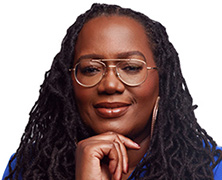What barriers do you see to closing the gender gap in STEAM?
The most significant barrier to closing the gender gap in STEAM isn’t at the entry-level but in ascending to leadership positions. In my career, I’ve been one of the few Black women to lead a historic concert hall and launch a significant cultural center in Harlem, witnessing firsthand how leadership opportunities narrow dramatically for women, especially women of color. Despite its progressive reputation, the arts sector struggles with systemic barriers that prevent diverse leadership, including limited access to networks, unconscious biases in hiring and promotion, and the absence of visible role models in executive positions. My recent appointment to the Massachusetts Cultural Development Policy Advisory Council and role on the Metropolitan Area Planning Council’s advisory committee for Greater Boston’s Comprehensive Economic Development Strategy have placed me in rooms where creative economy policy decisions are made. As an Associate Professor at Berklee College of Music, I see brilliant students with tremendous talent who rarely see themselves reflected in institutional leadership. Until we address structural barriers to advancement and create pathways for women to occupy executive roles and civic appointments in cultural policy, equity in arts leadership will remain elusive.
Describe your experiences as a woman in a STEAM career.
My STEAM journey began early: participating in a pre-professional dance program at Purchase College while in high school and performing in school musicals. Though I initially chose a “practical” major, my creative drive led me to launch a public access TV show called “NY Rap” and work as Director of Media Relations at an independent record label. After college, I co-authored “Still I Rise: A Graphic History of African Americans.” My entrepreneurial spirit emerged when I co-founded MIST Harlem, after which I pursued a Master’s in Live Entertainment Management from the University of Miami. A pivotal moment came when a mentor encouraged me to apply for the Executive Director position at the Arts Council of Princeton, a role I hadn’t considered myself ready for. She said, “They don’t need somebody like me… they really should have somebody like you.” This role opened doors to becoming the CEO of Newark Symphony Hall and other significant positions. Today, as both Associate Professor in Africana Studies at Berklee College of Music and Executive Director of Project REAP, I work to create similar pathways for others, ensuring diverse voices shape our cultural landscape and lead the development of vibrant, sustainable communities.





